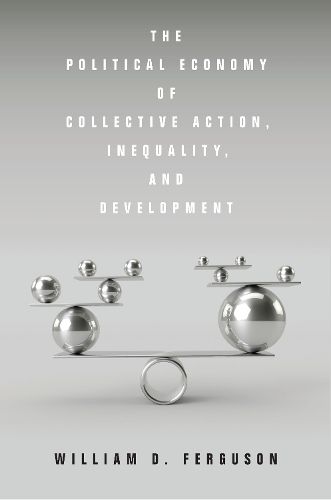Readings Newsletter
Become a Readings Member to make your shopping experience even easier.
Sign in or sign up for free!
You’re not far away from qualifying for FREE standard shipping within Australia
You’ve qualified for FREE standard shipping within Australia
The cart is loading…






This book examines how a society that is trapped in stagnation might initiate and sustain economic and political development. In this context, progress requires the reform of existing arrangements, along with the complementary evolution of informal institutions. It involves enhancing state capacity, balancing broad avenues for political input, and limiting concentrated private and public power. This juggling act can only be accomplished by resolving collective-action problems (CAPs), which arise when individuals pursue interests that generate undesirable outcomes for society at large. Merging and extending key perspectives on CAPs, inequality, and development, this book constructs a flexible framework to investigate these complex issues. By probing four basic hypotheses related to knowledge production, distribution, power, and innovation, William D. Ferguson offers an analytical foundation for comparing and evaluating approaches to development policy. Navigating the theoretical terrain that lies between simplistic hierarchies of causality and idiosyncratic case studies, this book promises an analytical lens for examining the interactions between inequality and development. Scholars and researchers across economic development and political economy will find it to be a highly useful guide.
$9.00 standard shipping within Australia
FREE standard shipping within Australia for orders over $100.00
Express & International shipping calculated at checkout
This book examines how a society that is trapped in stagnation might initiate and sustain economic and political development. In this context, progress requires the reform of existing arrangements, along with the complementary evolution of informal institutions. It involves enhancing state capacity, balancing broad avenues for political input, and limiting concentrated private and public power. This juggling act can only be accomplished by resolving collective-action problems (CAPs), which arise when individuals pursue interests that generate undesirable outcomes for society at large. Merging and extending key perspectives on CAPs, inequality, and development, this book constructs a flexible framework to investigate these complex issues. By probing four basic hypotheses related to knowledge production, distribution, power, and innovation, William D. Ferguson offers an analytical foundation for comparing and evaluating approaches to development policy. Navigating the theoretical terrain that lies between simplistic hierarchies of causality and idiosyncratic case studies, this book promises an analytical lens for examining the interactions between inequality and development. Scholars and researchers across economic development and political economy will find it to be a highly useful guide.